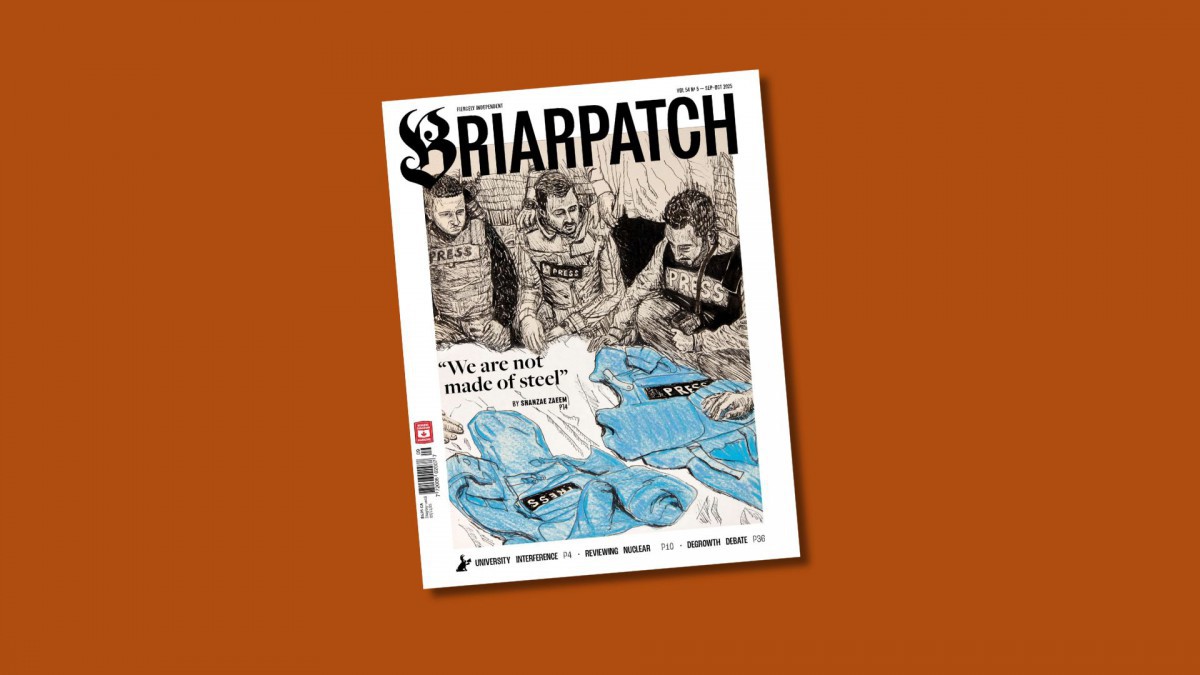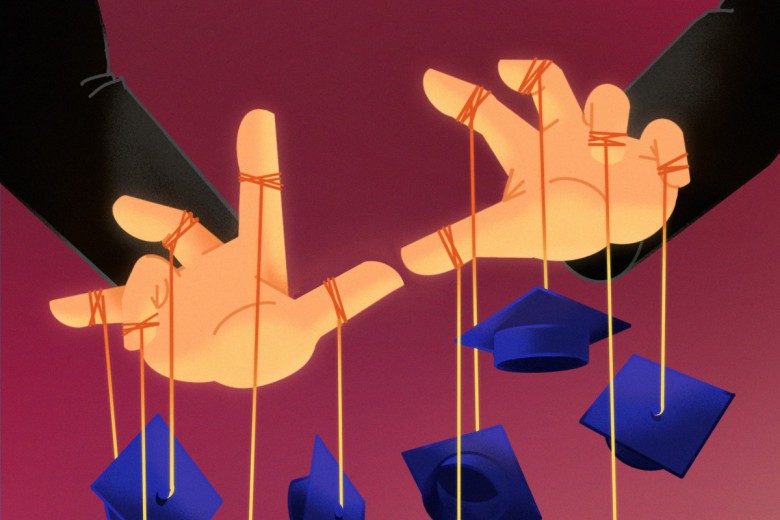“Speak up for us and don’t let us down. We are not numbers [...] each of us has a sacrifice and a story,” writes Salama Nabil Younis, a freelance photojournalist in Gaza, in an Instagram tribute to four journalists killed by Israel in late August 2025.
Those four journalists – Hussam al-Masri, Mariam Abu Dagga, Moaz Abu Taha, and Mohammed Salama – were killed by Israeli forces on August 25, as were Middle East Eye reporter Ahmed Abu Aziz and Al-Hayat Al-Jadida correspondent Hassan Douhan. Just two weeks earlier, on August 11, 2025, Israeli attacks also resulted in the deaths of journalists Anas al-Sharif, Mohammed Qraiqeh, Ibrahim Zaher, Moamen Aliwa, Mohammed Noufal, and Mohammed Al-Khalidi. All told, in the 14 days while this issue of Briarpatch was going through its fact-checking and copy-editing cycle, the Israeli army killed a dozen members of the press in targeted attacks, adding their names to the hundreds of other journalists and media workers killed by Israeli forces since October 2023.
In this issue’s cover story, Shanzae Zaeem discusses the psychological toll of war reporting with Younis; namely, the impacts of trying to get the world to see the truth of the genocide while living it. In the interview, translated from Arabic, Younis tells Zaeem, “I try to help my people with the only thing I know – telling their stories.”
By telling Younis’ story, Zaeem highlights the reality journalists and media workers in Palestine face daily. At the same time as Israel bans foreign journalists from Gaza, the occupation has killed over 200 journalists since October 7, 2023, according to reporting from Reporters Without Borders. This is Israel’s attempt to control the narrative by punishing those telling it, deliberately targeting and threatening them and, in some cases, their families. The perseverance of Palestinian journalists in the face of such conditions reminds us we have no excuse not to continue to resist.
Closer to home, resistance is required in different ways, as James J. Brittain reports in “Ruling ideas in Nova Scotia.” Brittain sounds the alarm on Nova Scotia’s passing of Bill 12, an Act which shackles academia to the economic priorities of the government. Brittain warns that this legislation could have far-reaching consequences, but due to the rest of Canada’s sidelining of news from the Maritimes, it continues to fly under the radar.
States often try to exert control over the public discourse, by legislation, by force, or by other means. Efforts to suppress truthful reporting, genuine inquiry, and critical thinking are efforts to change how the public thinks and reacts to the world around them. In that respect, we must resist however we can.
In this landscape of increasing government control and cuts to funding, being able to continue publishing alternative, grassroots reporting and analysis means leaning on the reliably excellent people who want to help bring that work to fruition. The work we do would not be possible without our fact-checkers, and Briarpatch would like to extend a big thank you to Emma Schultz who has been fact-checking pieces for us for eight years. Thank you Emma; we’ll miss your fact-checking eye around here!
In solidarity,
meera eragoda, Editor
Order your copy of the September/October 2025 issue here.






_780_520_90_s_c1.jpg)
